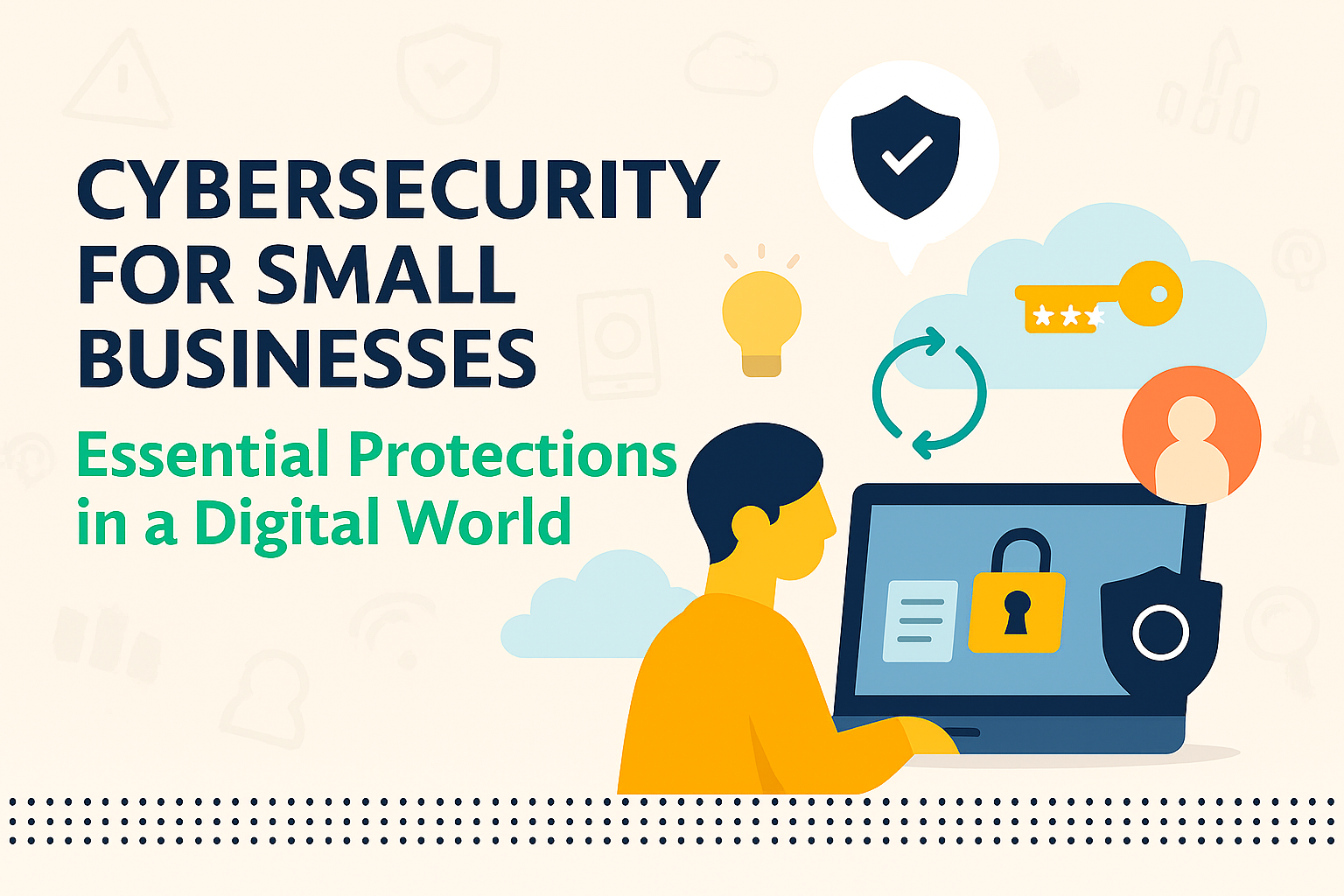Small businesses, often perceived as less attractive targets than large enterprises, are in fact highly vulnerable to cyberattacks due to limited resources, lack of dedicated IT staff, and insufficient security measures. This blog post serves as a critical guide for small business owners, outlining essential cybersecurity protections to safeguard their digital assets, customer data, and reputation in an increasingly threat-filled landscape. We’ll begin by dispelling the myth that small businesses are immune to cyber threats, highlighting common attack vectors such as phishing, ransomware, malware, and business email compromise (BEC) that can cripple operations and lead to significant financial losses. The article will then delve into foundational cybersecurity practices that every small business should implement. A primary focus will be on strong password policies and the mandatory use of multi-factor authentication (MFA) for all accounts, explaining how these simple steps dramatically reduce the risk of unauthorized access. Employee training will be emphasized as a crucial defense mechanism, detailing how regular education on identifying phishing attempts, safe browsing habits, and data handling protocols can turn employees into the first line of defense. We’ll also cover the importance of regular software updates and patching for all operating systems, applications, and network devices to close known vulnerabilities that attackers exploit. Data backup and recovery strategies will be thoroughly discussed, explaining the ‘3-2-1 rule’ (three copies of data, on two different media, with one copy offsite) to ensure business continuity in the event of a data breach or system failure. The article will also address network security essentials, including the use of firewalls, secure Wi-Fi networks, and virtual private networks (VPNs) for remote access. Endpoint security, through antivirus and anti-malware software on all devices, will be highlighted as a non-negotiable protection. Furthermore, we’ll discuss the importance of incident response planning, even for small businesses, outlining steps to take immediately after a breach to minimize damage and facilitate recovery. The blog will also touch upon compliance with relevant data protection regulations (e.g., GDPR, CCPA, HIPAA) if applicable, and the importance of securing customer data. Finally, we’ll provide actionable advice on choosing cost-effective cybersecurity solutions, leveraging cloud security features, and considering professional IT support or managed security services to bolster defenses. By adopting these essential cybersecurity practices, small businesses can significantly reduce their risk exposure, protect their valuable assets, and build trust with their customers.

